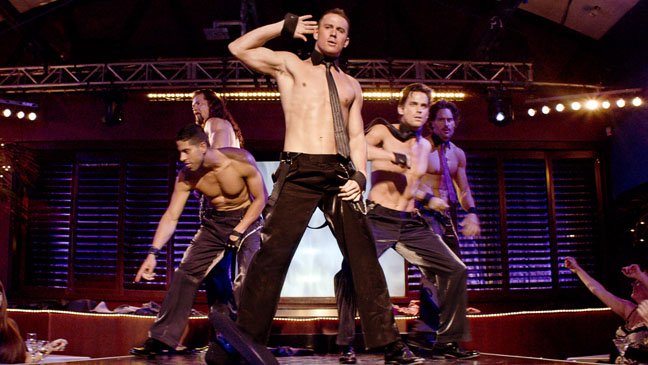
Sexy Men Bring Out the Inner Gamble in Average-Looking Male Poker Players, Researchers Claim

Don’t mess with Magic Mike: Sydney researchers found that average-looking males make more daring bets against other hot guys. (Image: Warner Brothers Pictures)
Attention, male poker players: don’t play poker against sexy men unless you’re prepared to lose your not-quite-as-sexy shirt.
That’s the advice from University of Technology Sydney researchers, following a series of experiments on a group of 820 men and women.
A research team led by Eugene Chan has found that men are more likely to make high-risk moves when confronted by a good-looking man.
Using a sequence of four experiments, Chan presented the participants with images of attractive men (as in Abercrombie & Fitch models), sexy women (Victoria’s Secret models) or “average” looking people, and presented them with a bet.
To Gamble or Not to Gamble
During one of the experiments, the participants were shown images from one of the aforementioned categories presented with the following option:Â to say “yes” and receive a guaranteed prize of $100 or opt to “gamble” for $1,000. Before making their decision the participants were told that the odds of winning the larger prize were 90 percent against.
Analyzing the results, the researchers discovered that the men (all of whom were reportedly heterosexual) presented with images of hunky models were more likely to gamble for the $1,000 prize than men who viewed images of sexy women or average-looking people.
Moreover, it transpired that there was no difference between the betting tendencies of women in any of these scenarios.
Similar results were shown in the other three tests, which has led Chan to conclude that men are more likely to gamble when confronted by attractive men. What’s the reason for this behavior, you ask ?
Not to mention what was the reason for funding this study, but that’s another matter for another day.
Chan believes men do this to “compensate for perceived inferiority.”
These findings seem to back up an earlier study into the process known as “discounting the future.” In an attempt to explain irrational behavior in humans, a 2003 study by psychologists in Canada found that men were more likely to discount the future and opt for an immediate reward when in the presence of an attractive woman.
Yes, some entity paid for that study as well, making us wonder why we even work for a living.
The Mating Mindset
When these two behaviors are combined (the mating mindset), men are more likely to take an immediate risk in an effort to prove themselves to the opposite sex and compensate for feelings of inadequacy.
“This financial risk-taking occurs because men want to appear more desirable to women, and having more money is one way to do so. Taking financial risks is one quick way to get more money, even if it might not be a sure thing,” said Chan.
No one mentioned if any hot babes were actually watching these purported Average Joes during the study, mind you.
The result of this research could work in favor of poker players that are considered attractive. While we’re not in the business of saying which male poker pros are hot and which are not, the findings could explain why some players make more mistakes when placed in certain scenarios.

Watch your bankroll: handsome male poker players such as Patrik Antonius could make you bet your shirt. (Image: pokerroyalty.com)
For example, according to Chan’s research, a group of “average” males would be more likely to make a daring move against Patrik Antonius, a former model, than they would be against someone less attractive (fill in your own names, our lawyers have advised us not to).
Therefore, if you’re a male and you find yourself sitting opposite a stud, we suggest you avert your eyes when you tangle with said handsome hunk in a big pot. Don’t say we didn’t warn you.
But What is Handsomeness or Beauty, Anyway?
The definition of beauty (or, in the case of our aforementioned study, handsomeness) has been an existential question that philosophers have debated for years.
For the purposes of Chan’s research, groups of participants were asked to rate images for others’ physical beauty.
Using men and women, the groups were presented with ten images of same-sex individuals and asked to rate them as “more attractive” or “less attractive” than the average person (a control image).
After dividing up the images into “hot” or “not,” the participants were then presented with one from either category during the betting tasks.
And now you know.















0 Comments